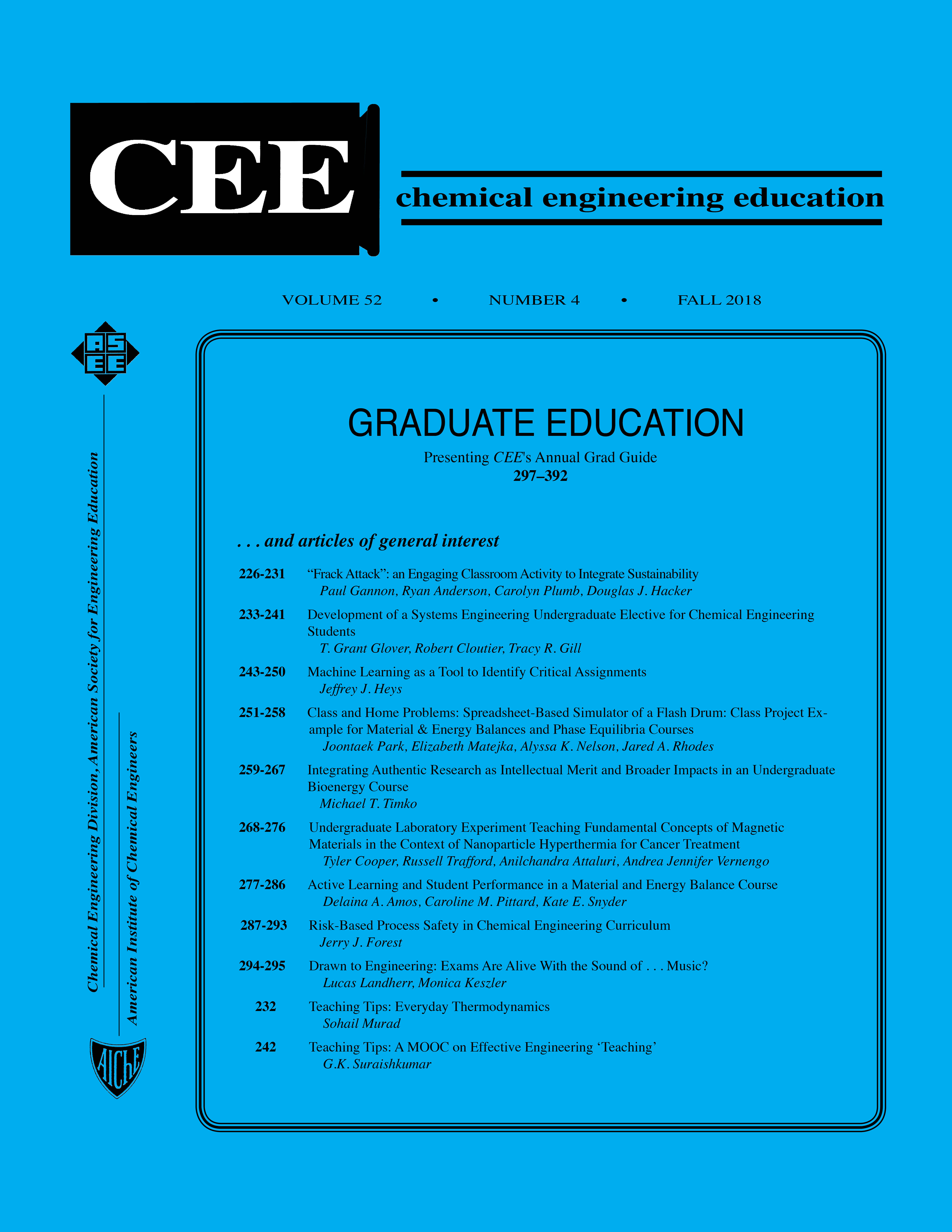“Frack Attack”: An Engaging Classroom Activity to Integrate Sustainability
Abstract
“Frack Attack” is a transferable classroom activity that combines active learning and teamwork to critically evaluate sustainability topics in contemporary engineering contexts. The activity was recently explored in three chemical engineering courses at Montana State University: two elective courses on sustainable energy (one freshmen-level and one senior-level) and one core sophomore-level fluid mechanics course. In all courses, the activity aimed to show the broader impacts of engineering (e.g., fracking), while tying in basic engineering concepts and practices (e.g., pump sizing). This article describes the class activity, its implementation and assessments, as well as opportunities for improvement and adoptability into other engineering courses.


